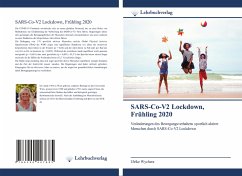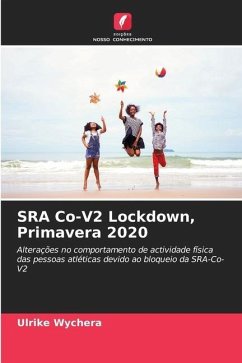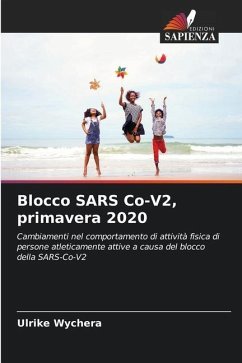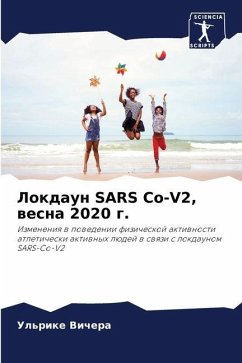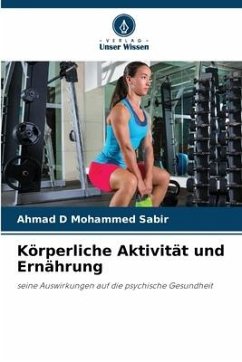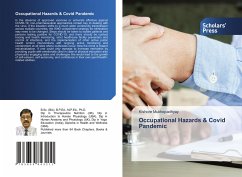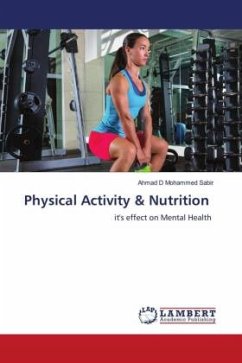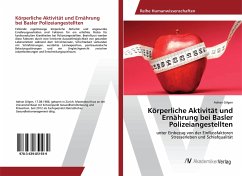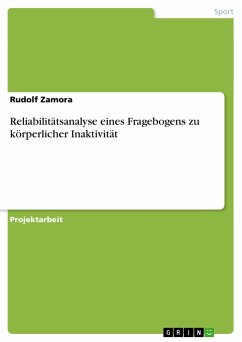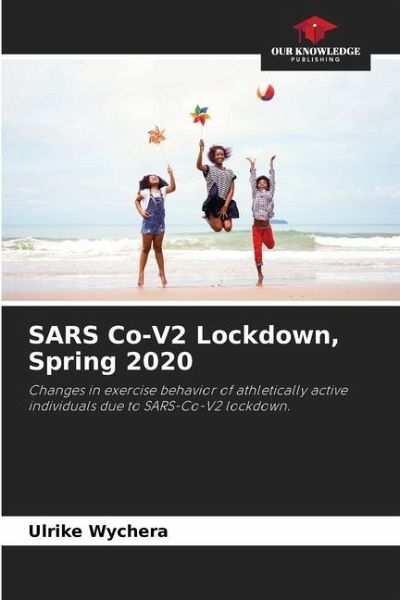
SARS Co-V2 Lockdown, Spring 2020
Changes in exercise behavior of athletically active individuals due to SARS-Co-V2 lockdown.
Versandkostenfrei!
Versandfertig in 6-10 Tagen
27,99 €
inkl. MwSt.

PAYBACK Punkte
14 °P sammeln!
The COVID-19 pandemic developed into a global emergency that led to a series of measures to contain the spread of the SARS-Co-V2 virus. Governments were forced to drastically restrict people's freedom of movement, which led to, among other things, a reduction in physical activity. The survey of 176 physically active people using the WHO Global Physical Activity Questionnaire GPAQ showed a significant reduction especially in intensive physical activities during leisure time (p = 0.04) and activities on foot or by bicycle to get from place to place (p = 0.002). During the lockdown, there was sig...
The COVID-19 pandemic developed into a global emergency that led to a series of measures to contain the spread of the SARS-Co-V2 virus. Governments were forced to drastically restrict people's freedom of movement, which led to, among other things, a reduction in physical activity. The survey of 176 physically active people using the WHO Global Physical Activity Questionnaire GPAQ showed a significant reduction especially in intensive physical activities during leisure time (p = 0.04) and activities on foot or by bicycle to get from place to place (p = 0.002). During the lockdown, there was significantly more sitting and resting (p < 0.001) but also sleeping (p < 0.001). 45.5% of the athletes rested longer and more than half of the subjects (52.7%) slept longer. The study clearly shows that even athletically active people moved significantly less and the time of inactivity increased massively. Governments worldwide are therefore challenged to launch campaigns for more active living to prevent the negative health effects of physical inactivity.




